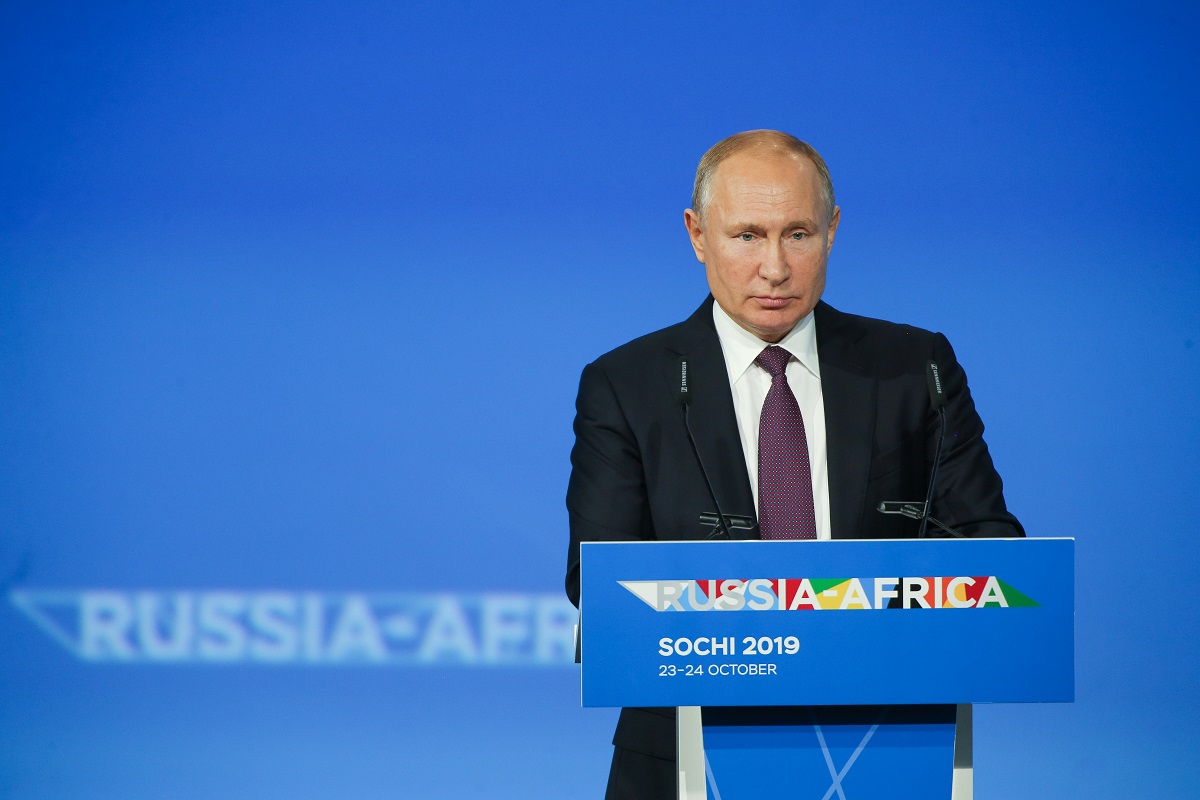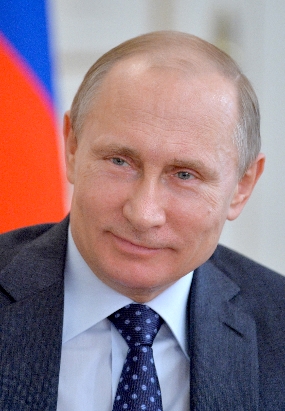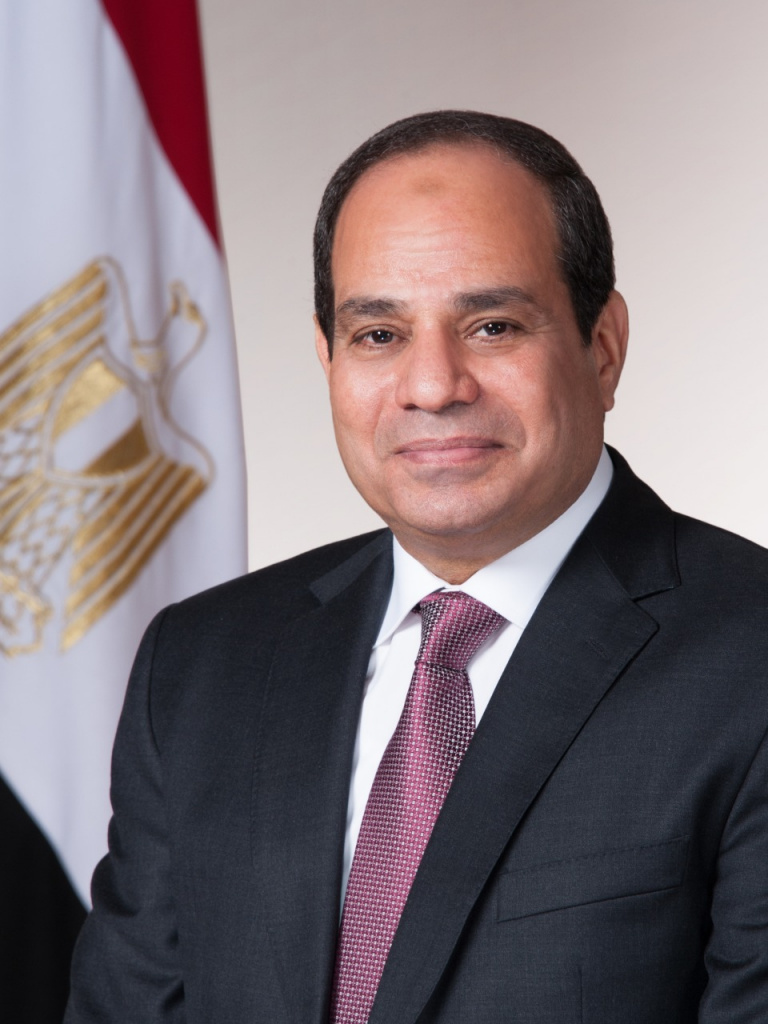Uncovering the Potential for Cooperation

KEY CONCLUSIONS
Developing business ties is on the strategic agenda of both Russia and the African countries as it has significant potential
“Developing close business ties serves our common interests, contributes to the sustainable growth of all our countries, helps to improve quality of life and solve numerous social problems,” – Vladimir Putin, President of the Russian Federation.
“Russia is among the top ten suppliers of food to the African market. We are now exporting more agricultural products than weapons to the markets of third countries. Weapons account for $15 billion of our exports, whereas agricultural products are nearing $25 billion in sales, I believe. So, the potential for development is good here.” – Vladimir Putin, President of the Russian Federation.
“We aim to develop mutually beneficial cooperation in the fields of science, technology, education, digital technology, culture, infrastructure – especially transport infrastructure – energy, industry, and mining. We believe we can develop cooperation further and take it to a whole new level,” – H.E. Amani Abou-Zeid, Commissioner for Infrastructure and Energy, African Union Commission.
Russian business is interested in working with all African countries
“African countries are becoming increasingly attractive for Russian businesses. This is largely due to the fact that Africa is becoming a global economic growth centre. According to experts, Africa’s GDP will have reached $29 trillion by 2050,” – Vladimir Putin, President of the Russian Federation.
“Apart from the ever so interesting commodities sector, promising investment opportunities include the energy sector, agriculture processing, urban development, fishery, education and medical services, and infrastructure development,” – Andrey Kostin, President and Chairman of the Management Board, VTB Bank.
“A continent that stretches for 30 million square kilometers possesses incredible mineral deposits, up to the 30% of the global wealth. Africa leads in a number of minerals, such as magnesium, chrome, bauxites, gold, platinum, cobalt, and diamonds,” – Sergey Gorkov, General Director, Chairman of the Management Board, Rosgeologia.
“Africa remains and will remain a priority for our grain producers. We supply many countries of the continent with wheat. It is known to be a stable and high-quality product,” – Sergey Yushin, Head of the Executive Committee, National Meat Association.
“Africa is among the most promising markets for Russian-made fertilizers. The last three years the consumption volume here is growing 4–5% annually, when the average global growth is at 1.5–2%. Today, Russian companies supply over a ton of produce to Africa, which amounts to 10% of the overall fertilizer consumption on the continent,” – Andrey Guryev, Chief Executive Officer, Chairman of the Management Board, PhosAgro.
State level support promotes networking
“Many Russian companies have for a long time and successfully worked with their partners from various sectors of the African economy and are determined to increase their presence in Africa. We will support such plans at the state level” – Vladimir Putin, President of the Russian Federation.
“Africa has numerous economic advantages and our economic Forum could become a platform that provides new collaboration opportunities,” – H.E. Amani Abou-Zeid, Commissioner for Infrastructure and Energy, African Union Commission.
“Both the Summit and the Forum happening in Sochi these days, show the growing mutual interests in developing joint projects. It is a great opportunity to discuss the goals we are facing,” Dmitry Mazepin — Chairman of the Board of Directors, URALCHEM.
Russia is ready to share competences and technologies in both commercial and social spheres
“African countries are going through a series of transformations: infrastructural, digital, and human. These transformations aim to improve the quality of life for the people that populate this great continent. In the recent years, Russia has amassed a great volume of competences and now we are ready to pursue joint projects that will aim at raising the living standards,” – Maxim Oreshkin, Minister of Economic Development of the Russian Federation.
“We are partners. Today, many new deposits, including those that are discovered in Africa with assistance from out companies, are discovered by our professionals. We are very proud,” – Dmitry Kobylkin, Minister of Natural Resources and Environment of the Russian Federation.
“We have developed cooperation in the fight against dangerous infectious diseases. Our country was one of the first to respond to the Ebola epidemic by allocating over $60 billion for fighting it. It should be said that the vaccine is very effective. I believe it is the best in the world,” – Vladimir Putin, President of the Russian Federation.
“Russia traditionally plays an active role in aiding the African countries in healthcare. This can remain our priority today,” – Veronika Skvortsova, Minister of Health of the Russian Federation.
PROBLEMS
Cooperation is still underdeveloped
“Russia-Africa trade more than doubled over the past five years and exceeded USD 20 billion. Is that a lot or a little? <…> I think it is way too little. Egypt accounts for USD 7.7 billion, or 40 percent, of these USD 20 billion. We have many potential partners in Africa, lots of them. They have good development prospects and enormous growth potential. Of course, this is not enough,” – Vladimir Putin, President of the Russian Federation.
“Unfortunately, Africa keeps exporting commodities and commodities carry low value. If we compare the overall flow it is a lot, yet the value of the commodities is low. So, if we look at what Russia exports to Africa, we will see goods and services of a completely different level,” – Stergomena Lawrence Tax, Executive Secretary, Southern African Development Community (SADC).
“Russia has similar problems and needs to resolve similar tasks. Today, we are talking about the need to raise the share of the non-commodity export,” – Irina Abramova, Director, Institute for African Studies of the Russian Academy of Sciences; Corresponding Member, Russian Academy of Sciences.
Increased international risks
“Cybercrime has intensified in the past few years. The attacks have increased in scale and danger, they bring colossal damage to the global economy. According to international experts, the losses from cyberattacks in 2018 in Africa amounted to USD 295 million, whereas global count was at USD 1.5 trillion,” – Alexander Vedyakhin, First Deputy Chairman of the Executive Board, Sberbank.
SOLUTIONS
Training professionals for Africa
“Training of skilled personnel is a traditional sphere of Russian-African cooperation. By the mid-1980s, we had built about a hundred educational establishments in Africa and half a million Africans have been trained for work at industrial companies and agricultural facilities in African countries. Currently, 17,000 Africans are studying here in Russia, including some 4,000 who are on federal scholarships,” – Vladimir Putin, President of the Russian Federation.
“Since the Soviet times it was a tradition that African students get their healthcare training at Russian universities. Today, over 3 thousand citizens of African countries study in Russia, and for nearly 500 of them the education is fully subsidized by the Russian Federation,” – Veronika Skvortsova, Minister of Health of the Russian Federation.
“Understanding the importance of skilled personnel training for Guinea, in 2011 Rusal launched a scholarship programme for talented youth. 100 competitive scholarships have been given out to study at the best universities in Moscow and Siberia,” – Yakov Itskov, Director of Alumina Business, RUSAL
Providing breaks and preferences for the African countries
“Russia provides systematic assistance to developing the African continent. We provide trade preferences and cooperate within international organizations, such as the World Food Programme. <…> Our country is participating in an initiative to ease the African countries’ debt burden. To date, the total amount of write-offs stands at over USD 20 billion,” – Vladimir Putin, President of the Russian Federation.
“We encourage to provide the African countries with discounted credits to fulfill their projects and development goals. It will help them to achieve their dreams, move towards progress, modernization, and sustainable development,” – Abdelfattah Al-Sisi, President of the Arab Republic of Egypt.
Removing trade barriers
“Our country has accomplished a lot in terms of economic and political reforms. We took important steps on the way towards regional and continental economic integration. The latest achievement is the African Continental Free Trade Agreement signed in Niger in July 2019. It drew a lot of attention in the international circles,” – Abdelfattah Al-Sisi, President of the Arab Republic of Egypt.
“If we talk about expanding cooperation potential – which is enormous indeed – then I would like to say the Free Trade Agreement is an incredible push towards fulfilling this potential,” – Andrey Slepnev, Chief Executive Officer, Russian Export Center.
“Lowering the risks. Unfortunately, today we live in an era of geopolitical uncertainty. We have tangible risks in the financial system, and we suggest expanding the non-dollar transaction practices, including those in Russian roubles,” – Andrey Kostin, President and Chairman of the Management Board, VTB Bank.
“Information portals for Africa and Russia must be created so that it becomes clear what is going on and what is being developed. That is why we are creating a special structure, as lack of information heightens the risks,” Benedict Okey Oramah — President, Chairman of the Board of Directors, African Export–Import Bank (Afreximbank)
Developing infrastructure in the African countries
“Competitive field in Africa is a serious issue. It is important to understand, that our infrastructure needs development. It will strengthen our competitive position,” – Stergomena Lawrence Tax, Executive Secretary, Southern African Development Community (SADC).
For more information, visit the Roscongress Foundation’s Information and Analytical System www.roscongress.org
Russia–Africa Summit and Economic Forum take place 23–24 October in Sochi at the Sirius Park of Science and Art. The event is organized by the Roscongress Foundation. Russia–Africa Economic Forum is co-organized by the Russian Export Center and Afreximbank.


